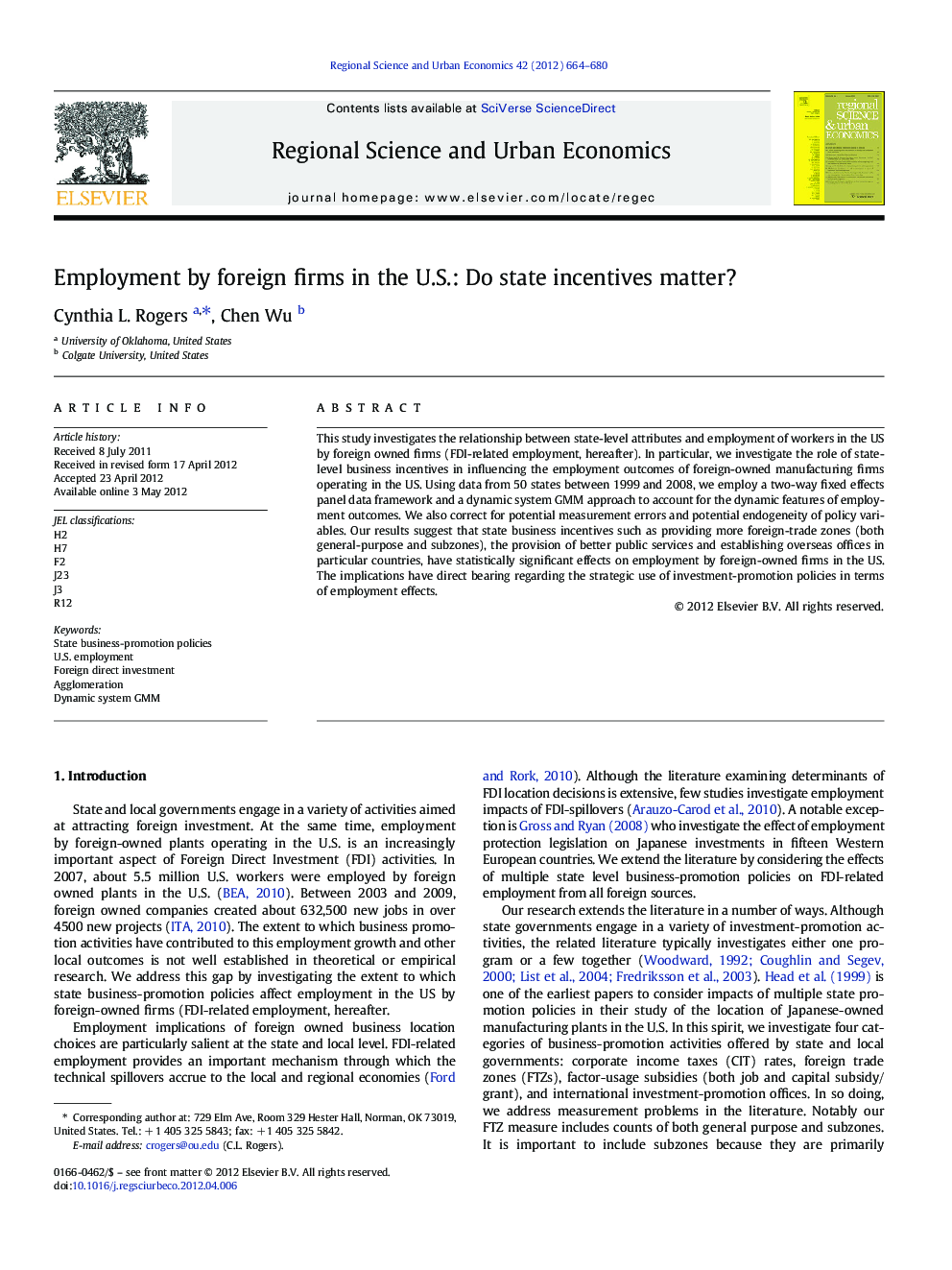| Article ID | Journal | Published Year | Pages | File Type |
|---|---|---|---|---|
| 983735 | Regional Science and Urban Economics | 2012 | 17 Pages |
This study investigates the relationship between state-level attributes and employment of workers in the US by foreign owned firms (FDI-related employment, hereafter). In particular, we investigate the role of state-level business incentives in influencing the employment outcomes of foreign-owned manufacturing firms operating in the US. Using data from 50 states between 1999 and 2008, we employ a two-way fixed effects panel data framework and a dynamic system GMM approach to account for the dynamic features of employment outcomes. We also correct for potential measurement errors and potential endogeneity of policy variables. Our results suggest that state business incentives such as providing more foreign-trade zones (both general-purpose and subzones), the provision of better public services and establishing overseas offices in particular countries, have statistically significant effects on employment by foreign-owned firms in the US. The implications have direct bearing regarding the strategic use of investment-promotion policies in terms of employment effects.
► We investigate the efficacy of state investment-promotion policies in the US. ► We evaluate manufacturing employment by foreign firms in US states from 1999–2008. ► The estimation uses a dynamic system GMM approach with two-way fixed effects. ► Business incentives are found to have statistically significant effects on employment. ► The results have implications for strategic use of investment-promotion policies.
